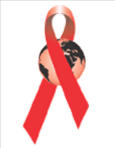
Selling Sickness: The Merchandising of Illness

Barbara Ehrenreich, in her essayWelcome to Cancerland, bewails the commercialization of disease support. For example, one can purchase teddy bears and lipsticks, bracelets and jeweled pins all to show support of breast cancer research. Although Ehrenreich's focus is hiding the rage and pain of cancer underneath her gold card and a pink ruffly bear, one wonders why so many different companies have adopted illness support themes for their merchandise. Cancer is probably the disease with the most "merchadizing", but other diseases, including AIDS, have their share of "support products."
For me, the first prime example of disease support as accessory was the red ribbon for AIDS victims. For an economic investment of about 10 cents, one could make a political statement with a snippet and a safety pin. Then Tim Robbins appeared on the Academy Awards with a lovely gold version of the simple ribbon. Suddenly jewelry catalogues were offering ruby and gold ribbons. It became something of a badge to buy a well designed, more expensive pin replicating the simple original. The political statment itself wasn't enough. The proceeds of these designer pins, of course, may have in varying degrees gone to AIDS research.
Other causes saw how well the ribbons sold and took the idea, although the color changed. Suddenly there was pink for breast cancer and yellow for suicide survivors. In some cases, the ribbons have taken on multiple meanings. A teal ribbon may mean support for ovarian cancer, cervical cancer, or survivors of sexual assault. Of course, if it is a teal and purple ribbon then it means Alzheimer's awareness. Almost everyone had a ribbon of some kind, although it was almost impossible to remember what all of them meant. I was given a turquoise ribbon at an NYU event, the meaning was actually written upon the ribbon to make sure the point wasn't missed.
Then breast cancer came along and showed these causes that they had been missing the bigger picture. Ribbons were just the beginning. Almost anything, including lipstick, can be sold "in support of a cause" as long as it was coupled with an ad campaign linking the object to the cause. Nike has learned that lesson very effectively. One of their latest commercials was labeled by a mefite as, "cancer as powerful tool to increase brand awareness." Consumers come to think of companies like Nike and MAC as "compassionate companies". But what compassion are they really showing? In the minds of the consumer, they create a positive connection thus making the consumer more likely to buy other non-cause oriented merchandise. The consumer donates the actual profits by buying the merchandise, and the percentage of what is actually donated on each sale is often questionable.
As for how much the consumer is really helping by purchasing such items, according to Ellis and McCurley, authors of Conspicuous Compassion, the consuming and wearing of these cause linked items doesn't help. The items are more to advertise oneself as a "sympathetic" and therefore "good" person. Essentially, individuals wearing or purchasing these items do not" help the poor, diseased, dispossessed or bereaved; instead they end up only 'projecting one's ego, and informing others what a deeply caring individual you are.'"
But that may leave some of us with the question of how support can actually be shown. For me, I took my red ribbon off a long time ago. I've had three people I know die of AIDS, and my support of AIDS victims was through running to the drug stores, making them dinner, talking to them about old boyfriends, looking at pictures, listening to music, and sharing stories. I've had others die from suicide, drug overdose, and cancer. I've been friends with the chronically ill and the disabled. I took off my pin because there were just too many causes I wanted to support and not enough room on my lapel for all of them. So I decided to support the people I knew personally as opposed to wearing fifteen different pins.
But that may leave some of us with the question of how support can actually be shown. For me, I took my red ribbon off a long time ago. I've had three people I know die of AIDS, and my support of AIDS victims was through running to the drug stores, making them dinner, talking to them about old boyfriends, looking at pictures, listening to music, and sharing stories. I've had others die from suicide, drug overdose, and cancer. I've been friends with the chronically ill and the disabled. I took off my pin because there were just too many causes I wanted to support and not enough room on my lapel for all of them. So I decided to support the people I knew personally as opposed to wearing fifteen different pins.
And if I ever get breast cancer and you send me Cheer the Breast Cancer Bear instead of sitting by me and reading poetry, I will find the strength to come find you and clobber you with it.
Bad Bunni posted at 7/21/2004 12:19:00 PM |
Comments:
Post a Comment
